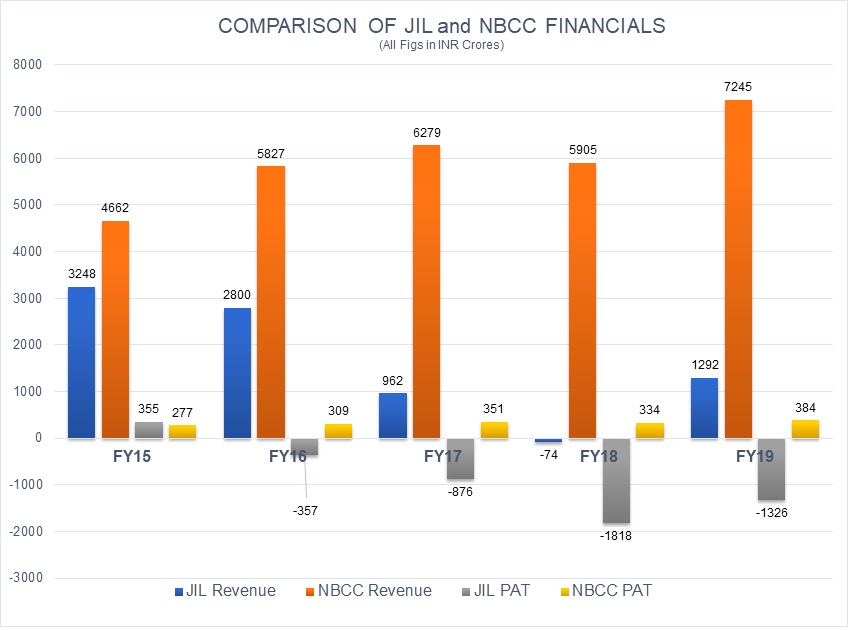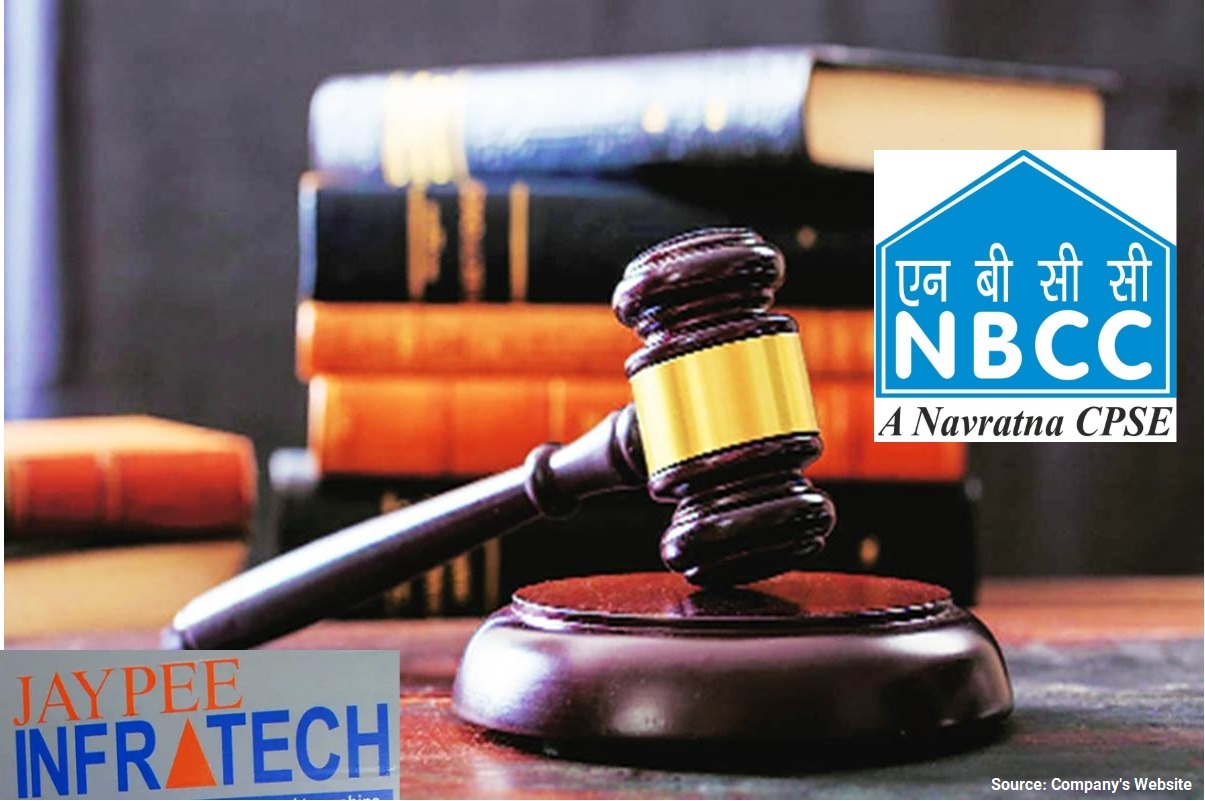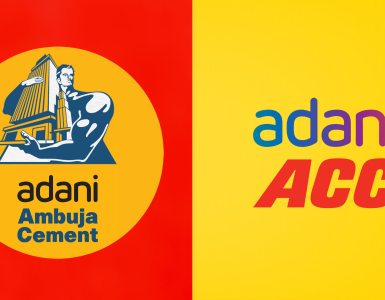After many years of wait, around 22,000 home buyers of Jaypee Infratech Limited (JIL) in the National Capital region (NCR) got some sigh of relief when state-owned construction company NBCC got the final approval from the National Company Law Tribunal (NCLT) to acquire debt-ridden township developer Jaypee Infratech under the insolvency process. The successful resolution of JIL will provide the much-needed relief to thousands of distressed homebuyers across the country and will help in reviving the morbid Indian real estate sector.
The state-owned company will complete the project in four years and hand over the flats to the owners, who have put in their lifetime savings to invest in the property. The NCLT also pointed out that Rs 750 crore, which was deposited by the promoter of Jaiprakash Associates Ltd (JAL) in the Supreme Court, can be used to complete the stuck projects. For the record, NBCC is a public sector unit with the backing of the government and has good track record of completing projects on time and executing mega-projects.
JIL goes to NCLT
In August 2017, Jaypee Infratech went into the insolvency process after the NCLT admitted an application by an IDBI Bank-led consortium. The NCLT appointed Anuj Jain as an IRP to conduct the insolvency process and manage the affairs of the company. In the first round, the bankers and the home buyers rejected the Rs 7,350-crore bid of Suraksha Group. In the second round in May and June last year, the Committee of Creditors (CoC) rejected the bids of Suraksha Realty and NBCC. After that, the matter reached the National Company Law Appellate Tribunal (NCLAT) and then the apex court.
On November 6, 2019, the Supreme Court directed completion of JIL’s insolvency process within 90 days and the revised resolution plan to be invited only from NBCC and Suraksha Realty, a Mumbai-based real estate firm. Then on December 7, 2019, the CoC finally decided to put on vote simultaneously the bids of NBCC and Suraksha Realty to acquire the bankrupt realty firm. The voting process started on December 10 and ended on December 16. There were 13 banks and around 22,000 home buyers which had the voting rights in the CoC, and it was decided by CoC that homebuyers and lenders would vote on both the bids, NBCC and Suraksha Realty, simultaneously.
Last year in December, the lenders and homebuyers voted in favour of NBCC’s bid to acquire Jaypee Infratech as an overwhelming 97% votes went in the favour of NBCC’s bid, making the resolution successful in the third attempt. Suraksha managed to get 2.12% votes as only fixed deposit holders and two lenders — Axis Bank and The Jammu and Kashmir Bank Ltd — favoured it.
As a part of the insolvency proceedings, NBCC offered 1,526 acres of land to lenders under a land-debt swap deal. On Yamuna Expressway, NBCC has proposed to transfer the road asset to lenders but before that it would take a loan of around Rs 2,500 crore against toll revenue to fund the construction cost of completing all the flats. NBCC has sought around three months’ time to raise money, sourcing agencies for various work-related to stuck housing projects and other formalities. The actual work on the project is expected to commence by the first week of May, provided the impact of coronavirus pandemic eases in the country.
After the government enacted the Insolvency and Bankruptcy Code (IBC) in May 2016, Jaypee Infratech was the first real estate company against whom insolvency cases were filed. As the case was unique involving several thousand homebuyers, the government amended clauses in the Act to benefit the homebuyers and they were given rights as financial creditors.
What went wrong with JIL
In 2009-10, Jaypee Infratech launched close to 50,000 flats n various real estate projects in Noida, a part of the National Capital Region, and along the Yamuna Expressway area. However, the slowdown in the real estate sector, government’s note-ban and liquidity crunch had affected the financials of the company and shattered thousands of buyers’ hopes. The company also channelized some funds for non-residential housing activities like building a Formula 1 track and stadium in Greater Noida.

The company could only deliver around 12,000 flats and a few hundred plots. The company also defaulted on bank loans from a consortium of banks. Then in July 2017, Reserve Bank of India (RBI) started the process of liquidation and for the first time referred 12 companies, one of which was JIL, to the NCLT as it allegedly defaulted in repayment of bank loan. A month later, IDBI Bank petitioned the NCLT to initiate insolvency proceedings against Jaypee Infratech for defaulting on loans worth Rs 526 crore. The company had resisted that it was not a defaulter and its assets were more than its debt. The company pleaded that it cannot be sent to for a resolution process. However, the NCLT appointed an Interim Resolution Professional (IRP) who invited proposals from companies to take over JIL and complete its unfinished projects.
In September 2017, few homebuyers moved the Supreme Court of India with a writ petition and the apex court stayed the insolvency resolution process. The court ordered that the holding company Jaiprakash Associates deposit Rs 2,000 crore with the court registry by October 27, 2017. So, by March 2018, the company deposited only Rs 550 crore. Then the apex court directed Jaiprakash Associates to deposit Rs 200 crore in two installments by May 2018.
While the Supreme Court made Jaiprakash Associates deposit Rs 700 crore, the IRP invited bids from interested buyers to buy Jaypee’s assets in the project. Initially, Cube Highways, Suraksha and Adani were selected as qualified bidders. Cube Suraksha Realty was shortlisted as the highest bidder, but the Committee of Creditors rejected the bid on technical grounds.
In June 2018, the government promulgated an ordinance to amend the Insolvency and Bankruptcy Code (IBC). Homebuyers became financial creditors. But there was no clarity on whether they are secured or unsecured financial creditors. The amended rules stated that homebuyers be treated at par with banks and institutional lenders and were part of the Committee of Creditors. They were empowered to co-drive the process of resolution of the real estate firm.
Insolvency law
Under the country’s current insolvency law, after a company’s proposals for insolvency is accepted, an evaluation expert is appointed to select the best proposal out of all. If the company with the best proposal gets 66% vote in the CoC, it gets the ownership right. On the other hand, if it fails, the other company’s proposal is put to vote, and the process continues till a proposal gets approved.
A total of 13 banks and financial institutions, 22,000 homebuyers and 900 fixed deposit holders had voting rights in the CoC. The voting share of a homebuyer was in proportion to his financial debt as a percentage of the total financial debt of the company and the buyers had nearly 60% voting share.
About Jaypee Infratech
Jaypee Infratech Limited (JIL) has developed the Yamuna Expressway project which includes 165 km six-lane access-controlled expressway from Noida to Agra with provision for expansion to eight lanes with service roads and associated structures. It was opened for the public on August 9, 2012. The Average Annual Daily Traffic (AADT) for 2018-19 was 27,808 passenger car units (PCUs) as compared to 26,140 PCUs in 2017-18. The revenue from toll collection for FY19 is Rs 345.70 crore as compared to Rs 325.73 crore in FY18.
The company had the right to develop more than 6,000 acres of land along the Expressway for residential, commercial, amusement, industrial and institutional purposes. It started developing the land parcel in Noida in 2008 and launched several residential and commercial projects. In total, more than 35,000 apartments were launched under various projects. All of them witnessed substantial demand and were sold out. However, the company failed to deliver projects as per the promised schedule, and also started defaulting on repayment of bank borrowings.
About NBCC
A government enterprise, NBCC was set up in 1960 and is a Navratna company. The company has done world-class construction activities on the back of its capabilities, innovative approach, adherence to the highest standard of quality and timely delivery. The company has entered a new business vertical named Re-Development of Government Properties. The maiden project in this vertical called re-development of Delhi’s New Motibagh GPRA Complex was successfully completed by the company, opening new opportunities for the company.
Conclusion
The NCLT’s final decision, passed after multiple appeals and litigation in civil court, through all the legal process, has paved a way for aggrieved home buyers to get similar relief in other stuck-real estate projects across the country. It was once again made clear by NCLT order and based on honourable Supreme Court observations that ‘The focus of the code was to ensure revival and continuation of the corporate debtor, where liquidation is to be availed of only as a last resort. The Code is beneficial legislation to put the corporate debtor on its feet, and not mere recovery legislation for the creditors. It is now up to NBCC to deliver on its promise and set a benchmark for the real estate industry to not squander with the money of homebuyers who have put in their lifetime savings to buy their dream homes.





Add comment